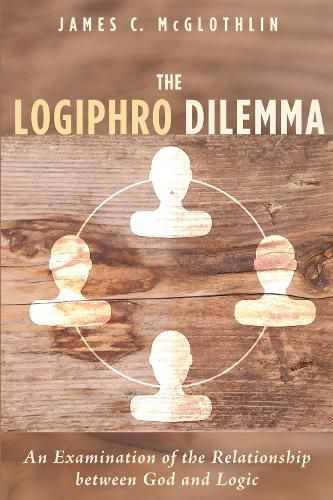Readings Newsletter
Become a Readings Member to make your shopping experience even easier.
Sign in or sign up for free!
You’re not far away from qualifying for FREE standard shipping within Australia
You’ve qualified for FREE standard shipping within Australia
The cart is loading…






This title is printed to order. This book may have been self-published. If so, we cannot guarantee the quality of the content. In the main most books will have gone through the editing process however some may not. We therefore suggest that you be aware of this before ordering this book. If in doubt check either the author or publisher’s details as we are unable to accept any returns unless they are faulty. Please contact us if you have any questions.
Is God above logic? If so, is he irrational? Is God subservient to logic? If so, is he really omnipotent? These questions are similar to Socrates’ infamous challenge to explaining God’s relation to morality, the so-called Euthyphro dilemma. In this book McGlothlin argues that the Euthyphro challenge can be extended to help explain the relationship between God and logic, what he call the Logiphro dilemma. Logic, on this account, depends on aspects of God’s mind other than God’s will. This is a nonstandard form of theistic logical dependence. It contrasts both with the standard form of theistic logical dependence, according to which logic depends on God’s will, and with theistic logical independence, according to which logic is independent of God. These rival views can be seen as the horns of the Logiphro dilemma: either logic depends on God’s will, in which case special revelation would no longer be communicable; or logic is independent of God, in which case core claims of classical theism–for example, that God is the only independent being–would be violated. The best way to escape both of these horns, according to McGlothlin, is to adopt the nonstandard form of theistic logical dependence.
$9.00 standard shipping within Australia
FREE standard shipping within Australia for orders over $100.00
Express & International shipping calculated at checkout
This title is printed to order. This book may have been self-published. If so, we cannot guarantee the quality of the content. In the main most books will have gone through the editing process however some may not. We therefore suggest that you be aware of this before ordering this book. If in doubt check either the author or publisher’s details as we are unable to accept any returns unless they are faulty. Please contact us if you have any questions.
Is God above logic? If so, is he irrational? Is God subservient to logic? If so, is he really omnipotent? These questions are similar to Socrates’ infamous challenge to explaining God’s relation to morality, the so-called Euthyphro dilemma. In this book McGlothlin argues that the Euthyphro challenge can be extended to help explain the relationship between God and logic, what he call the Logiphro dilemma. Logic, on this account, depends on aspects of God’s mind other than God’s will. This is a nonstandard form of theistic logical dependence. It contrasts both with the standard form of theistic logical dependence, according to which logic depends on God’s will, and with theistic logical independence, according to which logic is independent of God. These rival views can be seen as the horns of the Logiphro dilemma: either logic depends on God’s will, in which case special revelation would no longer be communicable; or logic is independent of God, in which case core claims of classical theism–for example, that God is the only independent being–would be violated. The best way to escape both of these horns, according to McGlothlin, is to adopt the nonstandard form of theistic logical dependence.